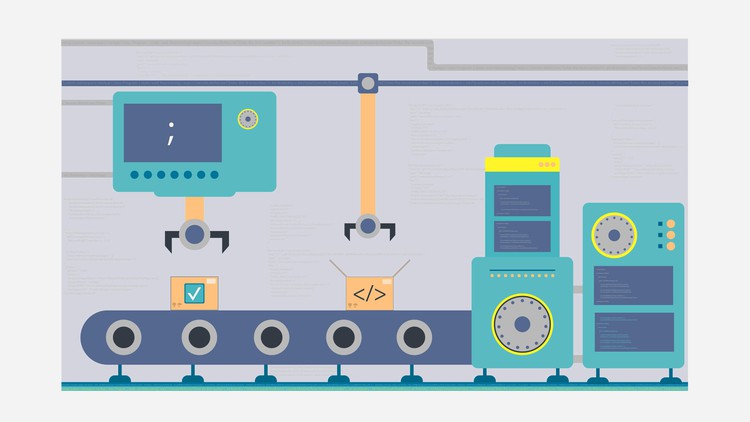Learn how to use Packer to create a custom Azure DevOps agent
From conception to completion, a project of manufacturing quality
What you’ll learn
Learn how to use Packer to create a custom Azure DevOps agent
- Create a Packer template to create a customized Windows image.
- To automate the picture creation process, use an Azure DevOps pipeline.
- Create a virtual machine scale set and use the ARM template to automate it.
- Keeping project secrets safe with a key vault
Requirements
- Knowledge of PowerShell
- DevOps experience with Azure
- Azure knowledge is required.
Description
Learning a high-quality project
This is a one-of-a-kind course that will teach you how to build bespoke Azure DevOps agents from the bottom up. Most software teams that utilize Azure DevOps to develop software pick, Azure-hosted agents, as their build server at the moment. This has several advantages.
This, however, has its own set of constraints. Because Azure Hosted Agents employ a certain kind of VM, increasing hardware specs is not feasible. If your projects use libraries that Azure Hosted agents do not support, you must install them on the agents. This may not be a problem for projects that began in the last few years, but if you have legacy code that takes an hour to build, you should consider how you might speed up the build process. There are several remedies for such a circumstance, such as reviewing software design and so on, which are outside the scope of this essay. In this tutorial, I’ll show you how to build your own self-hosted agent.
Personalized Self-Host Agent
It is feasible to construct an agent pool and add our own agents using Azure DevOps. Your own laptop, on-premise server, or virtual machine may all act as agents. The goal of this course is to demonstrate how to develop a completely automated process for creating a custom Windows image. This provides us with the advantage of having a single picture that has all of the programs and settings we need. We may also use this picture to create a virtual machine or a virtual machine scale set with the required hardware requirements.
Learn how to implement the design after you understand it.
This course is unusual in that you learn about the design process before diving into execution. It is critical to understand why we adopt particular approaches and then to learn how to put them into practice. I will guide you through all of the necessary stages, and you may code along with me to develop this solution.
Everything is written in code.
It is essential to have everything coded these days. The same is true for pipelines. PowerShell scripts, Packer, Azure DevOps YAML pipelines, and Azure ARM templates are all used in this course. As a result, you’ll learn how to utilize all of these tools in a project, and I’ll go through everything in great depth.
It is suitable for a wide range of purposes.
This course may be used for a variety of reasons. It may assist you in learning:
- How to use Packer to produce a customized Windows image
- How to make a Virtual Machine Set from a custom picture
- In Azure DevOps YAML pipelines, how to leverage the Azure Key Vault for secrets?
And there are many additional factors to consider when launching initiatives like this.
Who this course is for:
- DevOps/System engineers in the middle who want to create a bespoke build agent
- VMSS instances are created.
- Because this course was created for Windows users, it may not be totally compatible with Mac users.
Learn how to use Packer to create a custom Azure DevOps agent
Build a simple forum in PHP and MySQL Course
Get Course Now





